As a chronic overspender, abandoned cart emails work on me more often than I’m comfortable admitting. They’re the ones that land in your inbox begging you to come back and finish the checkout process—and apparently, I’m susceptible to begging.
And as a marketer, I’m also in tune to what makes an abandoned cart email effective as a way to stay on your customers’ radar and increase revenue for your online store.
I really had to dig deep into my email archive (and crowdsource quite a bit) to find these examples—because most of what’s landing in my inbox is a snooze. But the good news? Even though it’s a simple concept, there’s plenty of room for your brand to shine.
Here are eight abandoned cart email examples that can help you build an effective cart recovery strategy.
Table of contents
What is an abandoned cart email?
An abandoned cart email is an email that brands send to potential customers who added an item to their online cart but left the website without checking out. These emails are usually short and sweet, with some combination of an encouraging message, a reminder of the item(s) that were left in the cart, and a call to action.
8 abandoned cart email examples
These eight examples each take a slightly different approach to the abandoned cart email, so take inspiration from the ones that match your brand’s vibe the most.
1. Kohl’s
The easiest way to capture your recipient’s attention is to make the email personal to them. This personalization can be as simple as a subject line with their name in it, like this email from Kohl’s that was sent to my editor.
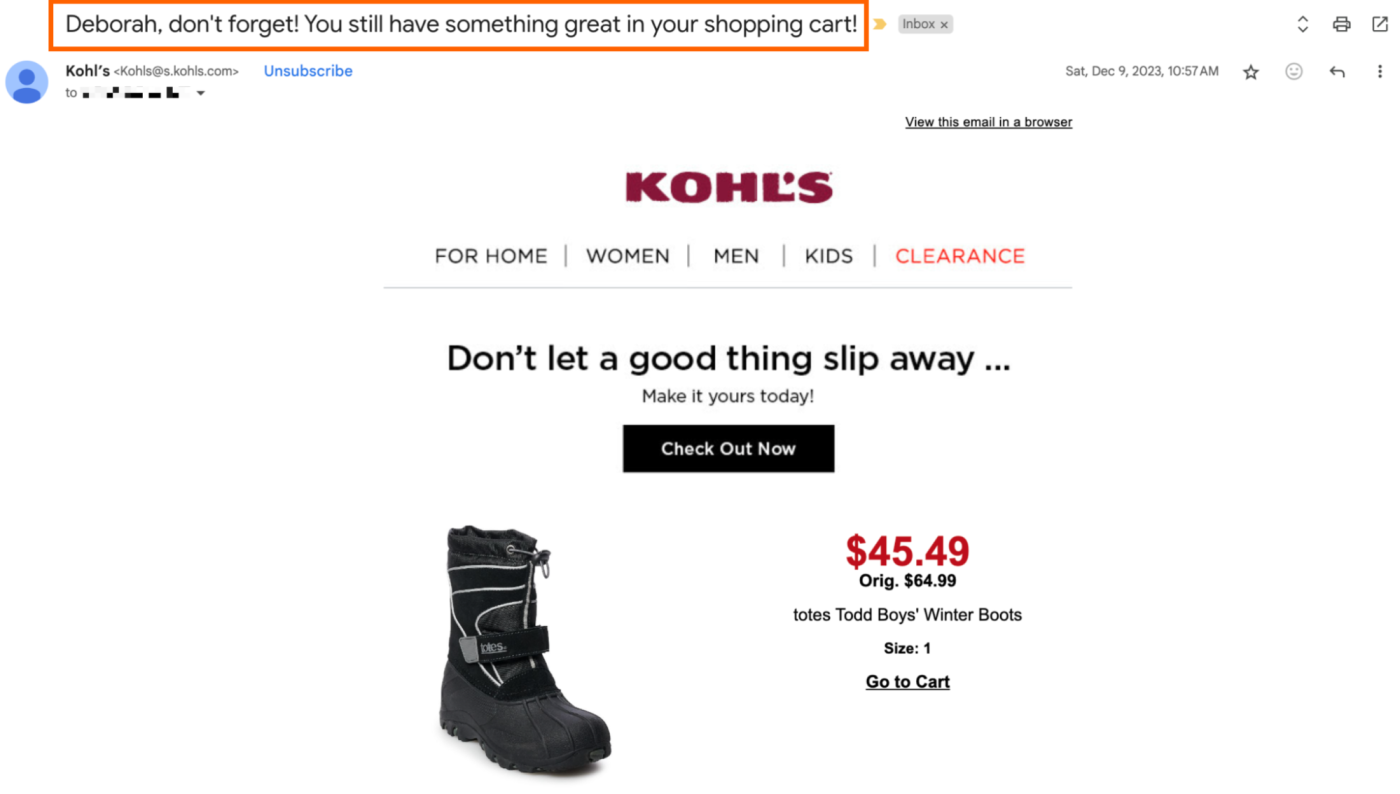
2. Fast Growing Trees
It’s also a good idea to personalize the body copy by referring to the item(s) the customer has in their cart. This email from Fast Growing Trees used my name and encouraged me to click Purchase on that lemon tree I’d been eyeing.
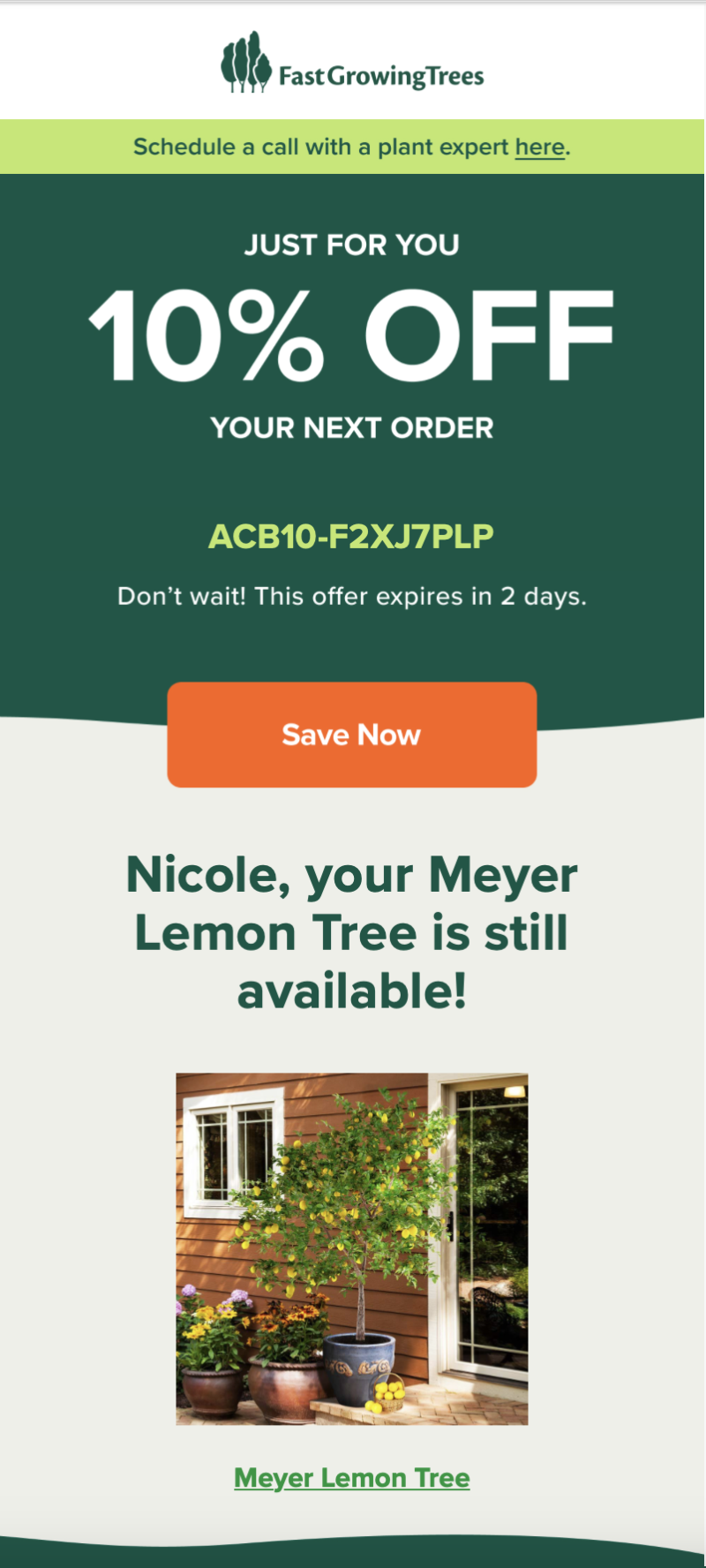
Most email examples in this list dynamically show the specific items in the customer’s cart, but the more extra touches you can add to personalize your message, the better.
3. Retrokid
Have you ever taken the last cookie from the jar not because you were hungry, but because you wanted to get it before someone else in your family did? This tendency also holds true in sales, and it’s called the scarcity principle.
If a customer feels like the item they’re interested in won’t be available forever, they’re much more likely to follow through on a purchase. This email from Retrokid is a good example of using the scarcity principle.
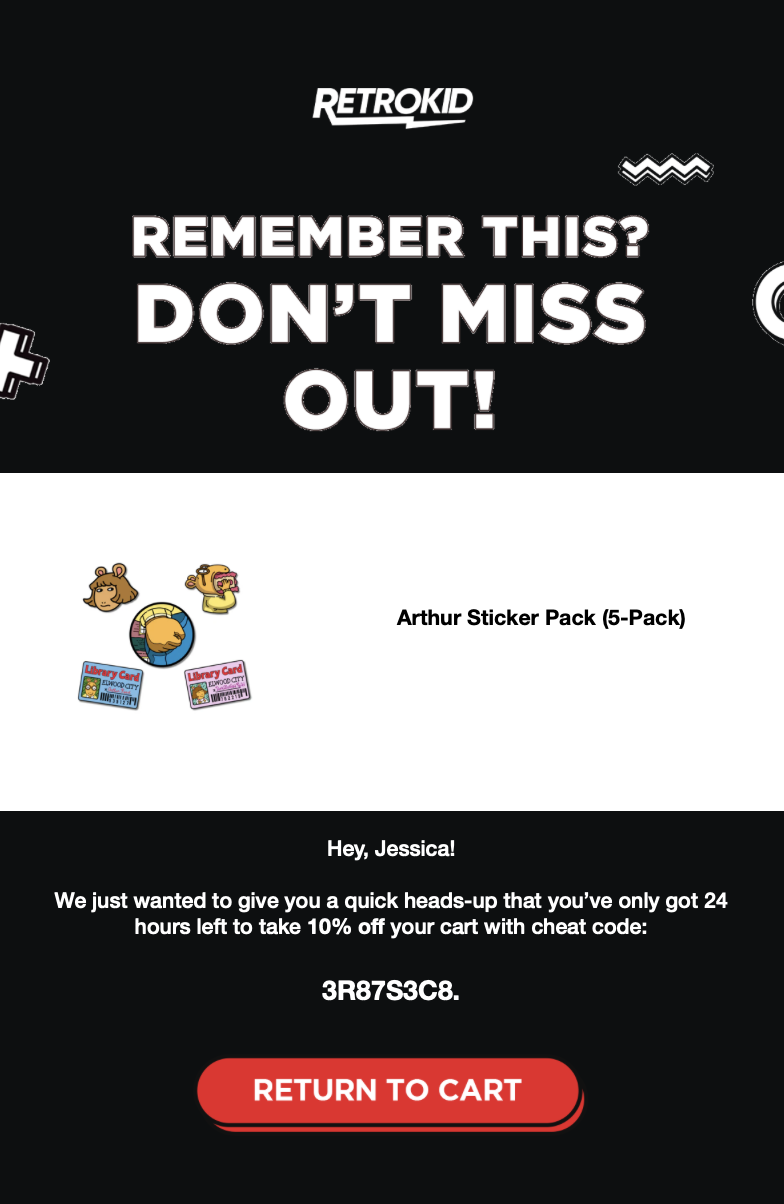
The “Don’t miss out!” in big font combined with a short-lived discount code makes it tempting to buy that sticker pack sooner rather than later.
4. Period
Speaking of discount codes, a special offer is always a good idea if you’re trying to get someone to click Check out. A lot of abandoned carts happen because of the high cost of shipping or other last-minute fees, so a discount could encourage them to come back.
This email from Period puts the 10% discount front and center, with two bolded mentions of the discount as well as in a prominent CTA button.
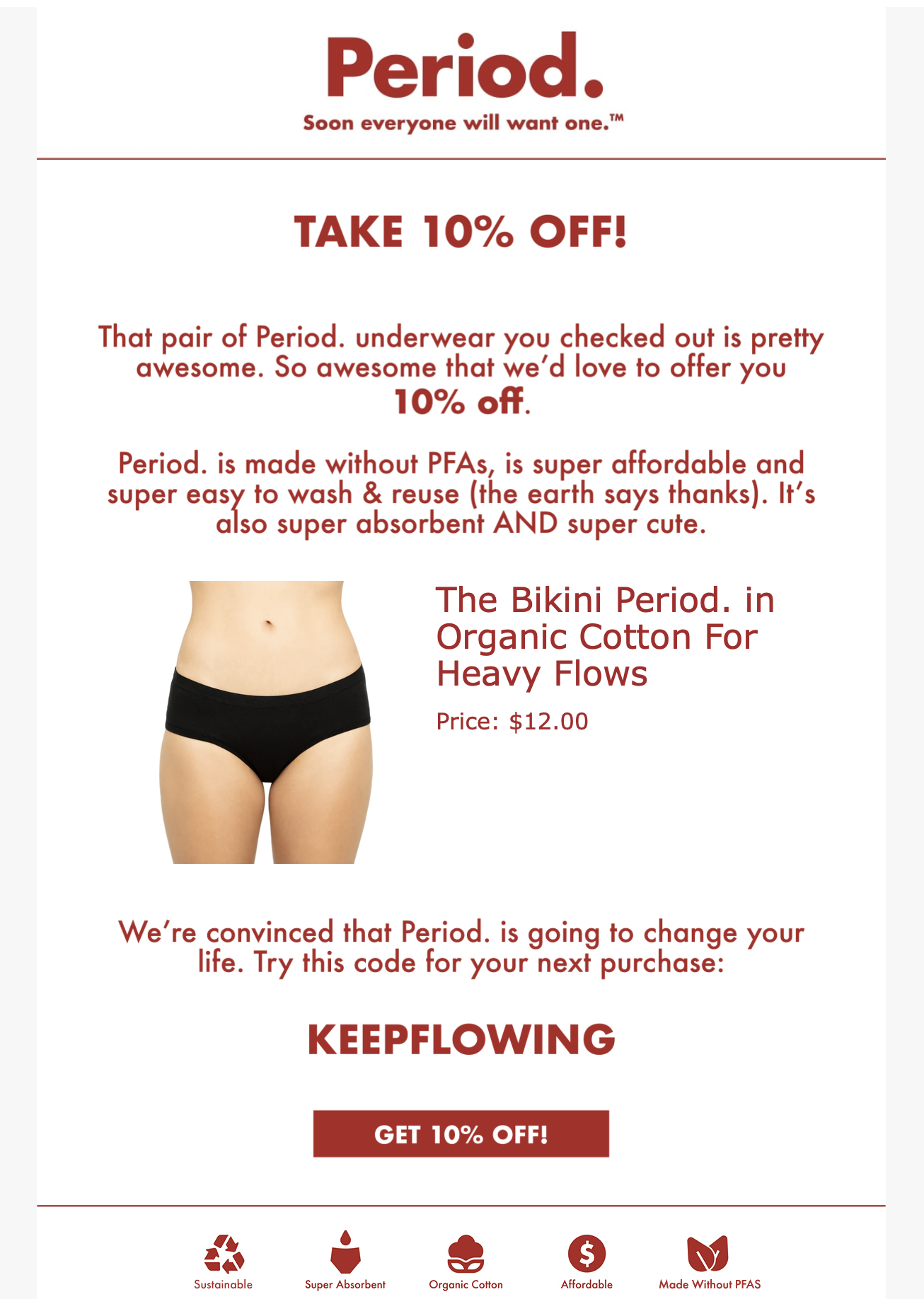
5. Wildfang
Here’s one from Wildfang, which combines a discount with a sense of urgency by giving a three-day cutoff. And they’re not joking around with the size of that CTA.
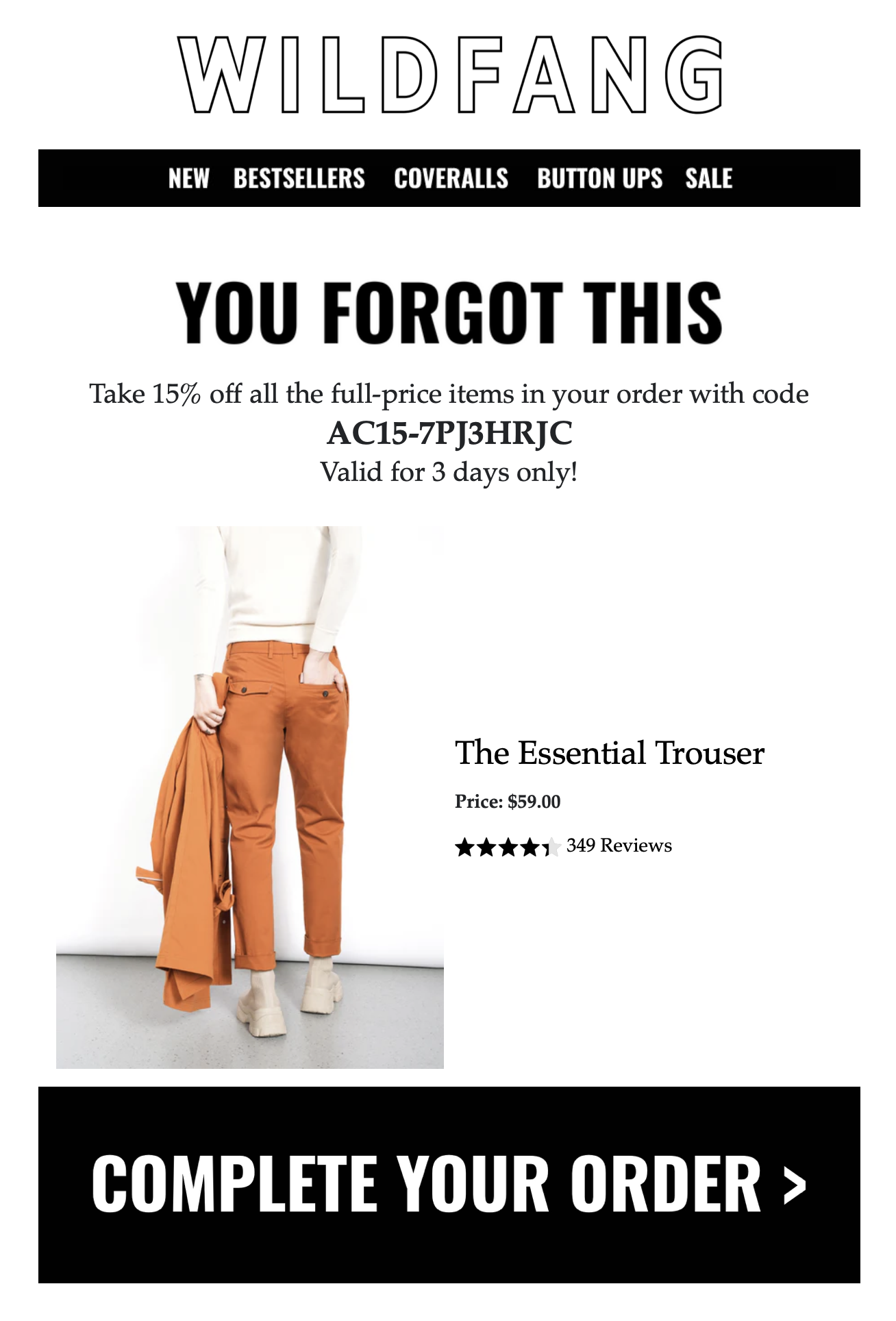
6. Brooks
Your audience will always appreciate a little personality, as long as you don’t go overboard. One way to inject voice into your abandoned cart emails is to use phrasing, terminology, or even puns that relate to your industry.
I shop at Brooks way too much—and I’ve noticed the brand does a good job of leaning into the terminology of running obsessives like me. This abandoned cart email, for example, uses a standard encouragement you might hear at a race (“You’re almost there!”).
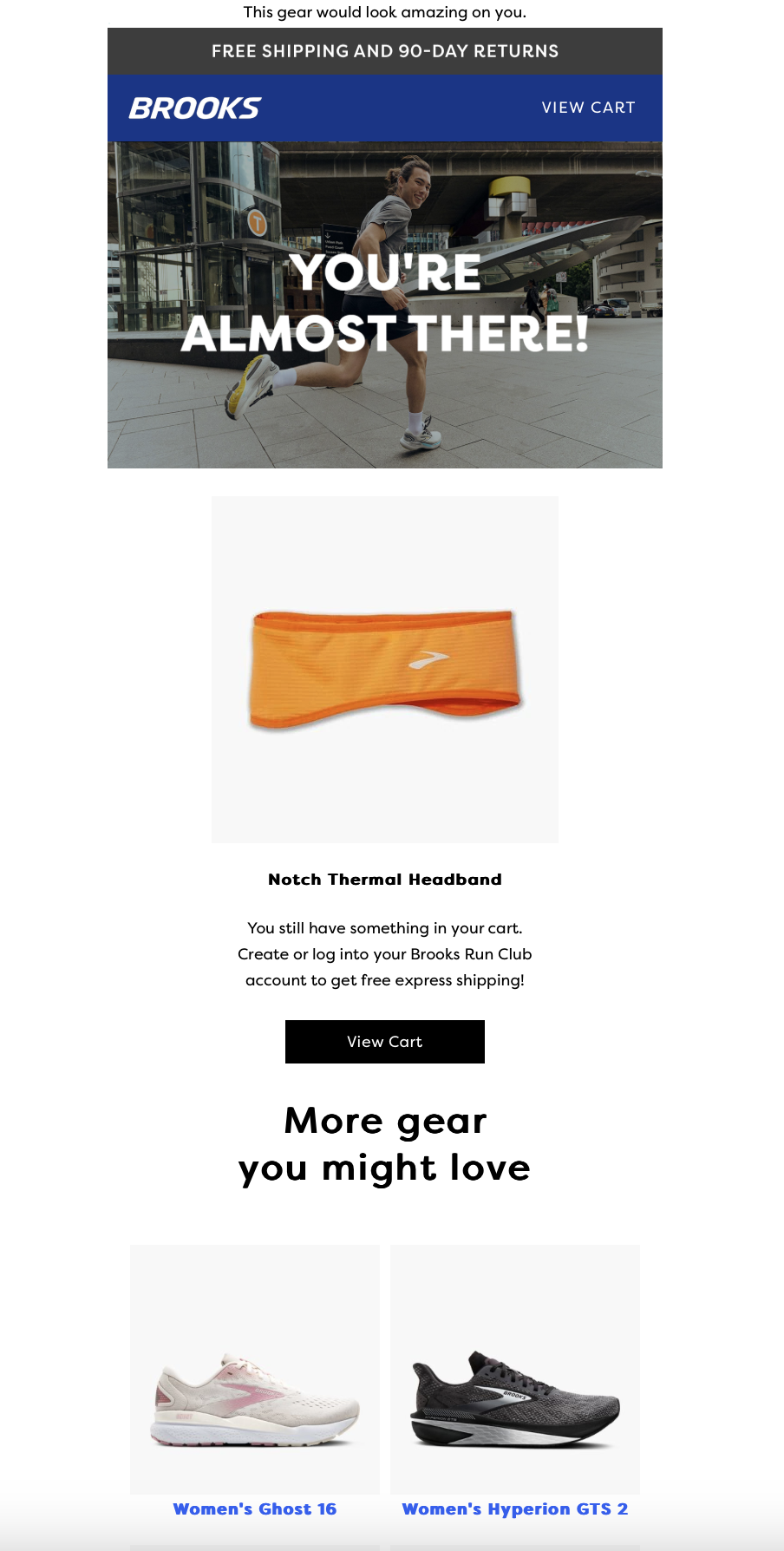
It’s a tongue-in-cheek way to trigger the same excitement you feel when someone cheers you to the finish line—only this time, that end goal is a cute new ear warmer for those winter workouts. (It’s even Zapier orange! I have to buy it, right?)
7. Article
Most people ruthlessly delete marketing emails after barely a glance—but the ones that lead with humor make me do a double-take, every time.
You don’t have to be a professional comedian to employ humor in your abandoned cart emails. In fact, sometimes the simplest wordplay works best, like in this quick pun from Article.
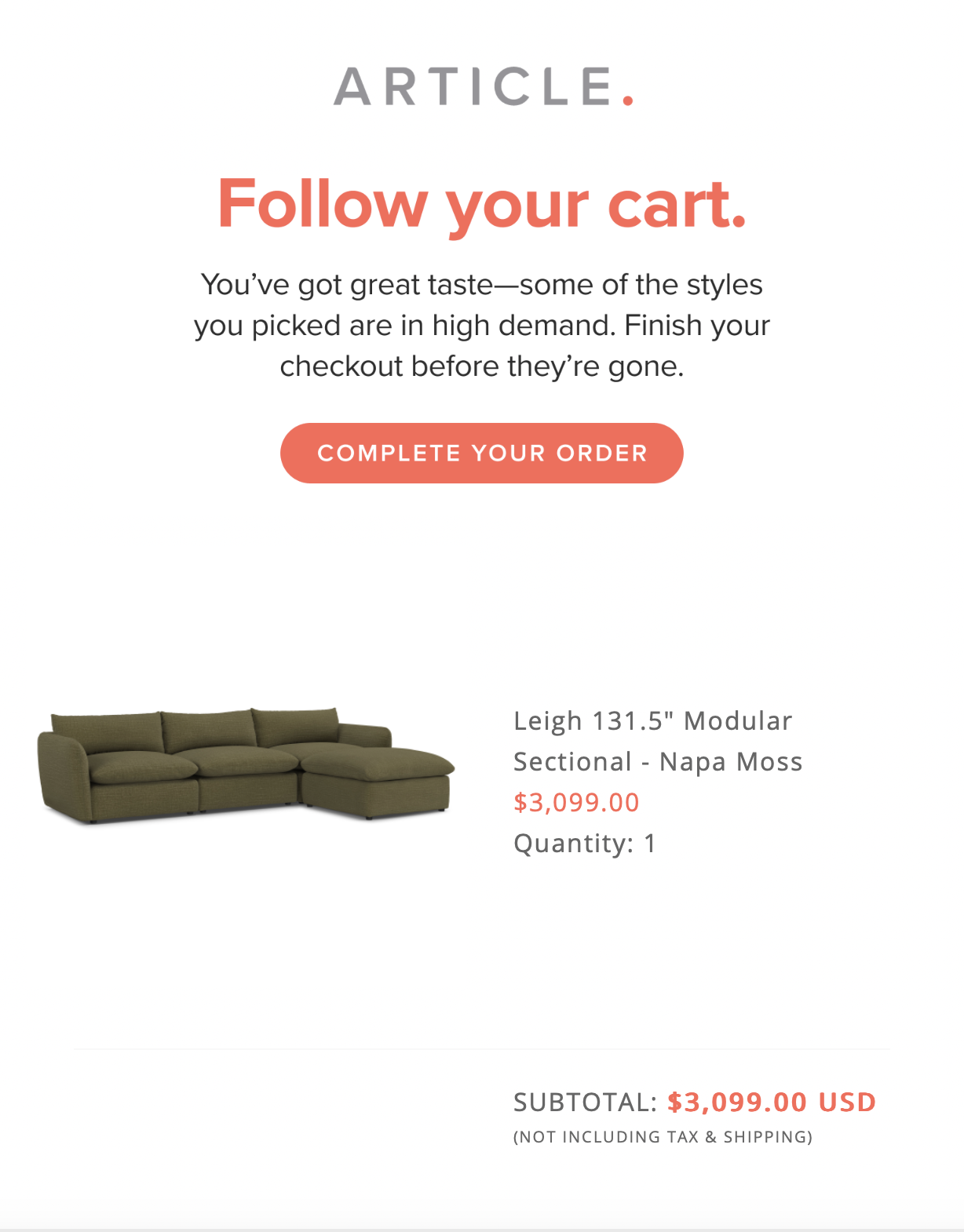
By injecting a quick joke that makes the reader smile (“Follow your cart”), you not only capture their attention, but you make them more favorably disposed to your business.
Just make sure the humor you use fits your brand voice and style—and that it won’t be offputting to your audience. General rule: don’t use curse words or make jokes at anyone’s expense but your own.
8. Everlane
No one likes an overly flashy or salesy email. And since abandoned cart emails are making a last-ditch effort to push a prospect over the finish line, they can feel especially aggressive if they’re not done correctly.
So, it’s important to use thoughtful design that doesn’t overwhelm readers. Stick to your brand tone and voice, but lean toward simplicity and confidence where possible. This email from Everlane is a good example of simple design that mixes minimal copy with a lot of white space.
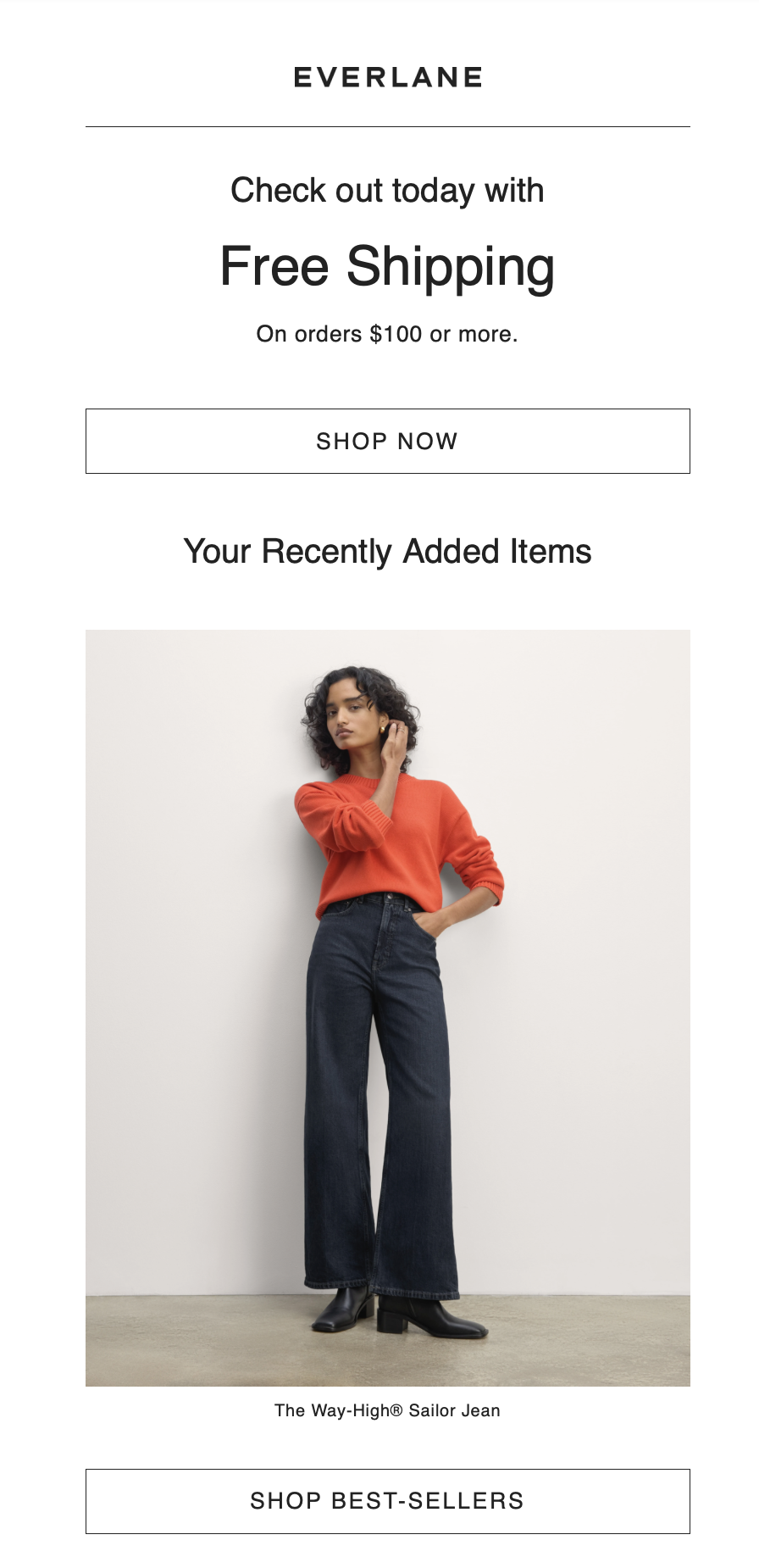
When in doubt, keep your abandoned cart emails focused on the important elements: a reminder of the items in their cart, a call-to-action, and a discount offer or other incentive. Then you can sprinkle in a bit of stylistic flair and personality with discretion.
Abandoned cart email best practices
To recap, I recommend keeping in mind these lessons from the examples we just looked at:
-
Personalize where possible, whether it’s in the subject line, body copy, or both. And always link directly to the item or items that the person left in their cart.
-
Offer a discount to encourage price-sensitive customers and make the reader feel like they’re getting special attention.
-
Use the scarcity principle to encourage customers to make a purchase before the item (or discount) runs out.
-
Lean into your brand by using industry-specific terminology or phrases that show you really get your customers.
-
Use humor to make the reader smile and make your brand stand out.
-
Be thoughtful with design to avoid being overly flashy or salesy.
Automate your abandoned cart emails
Since abandoned cart emails should be timed precisely, it’s best to automate them. Most eCommerce apps will offer some abandoned cart automation, but if you’re working across apps, Zapier can connect your eCommerce and email marketing tools. That way, whenever a customer leaves a cart in Shopify, for example, they’ll automatically be added to your abandoned cart email flow in Mailchimp. Learn more about how to automate your eCommerce store, or get started with one of these pre-made abandoned cart automations.
Zapier is a no-code automation tool that lets you connect your apps into automated workflows, so that every person and every business can move forward at growth speed. Learn more about how it works.
Abandoned cart email FAQ
How many abandoned cart emails should I send?
The sweet spot for abandoned cart recovery seems to be three emails. According to a 2024 Klaviyo study, the best sequence looks like:
-
2-4 hours later: A quick reminder message
-
24 hours later: Follow up with a discount offer
-
48 hours later: Last message recommending alternatives and/or asking for feedback
How long should you wait to send an abandoned cart email?
It’s usually best to send abandoned cart emails between two and four hours after the customer leaves your website. Waiting too long means they’re less likely to remember or need your product—but sending an email too soon can come off as creepy.
Are abandoned cart emails transactional?
Transactional emails respond to a specific action the customer takes, so yes, an abandoned cart email qualifies as transactional. The customer leaves their shopping cart without completing a purchase—which triggers the cart recovery email.
Related reading